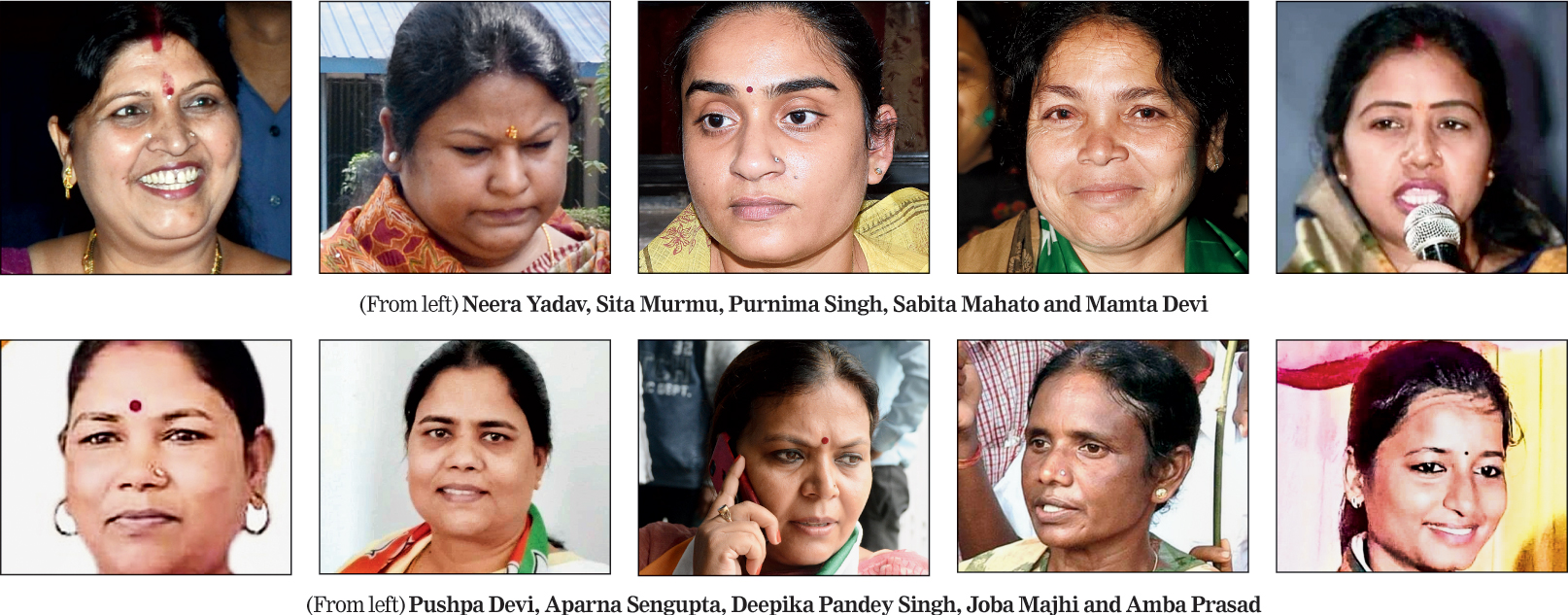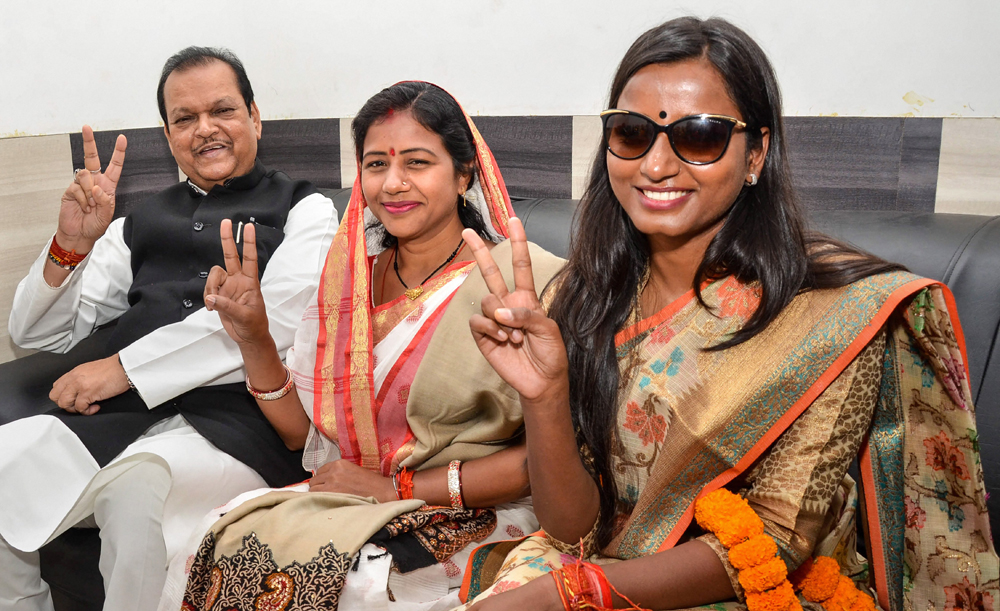Jharkhand elected 10 women to the 82-member Assembly — 81 elected and one nominated — in the just-concluded state polls.
In 2005, only five women became MLAs. In 2009, the figure rose to eight. In 2014, nine women won. Wives of two sitting JMM MLAs disqualified after conviction in criminal cases won the 2018 Silli and Gomia bypolls, raising the figure of women MLAs to 11.
This Assembly election, 125 women candidates, including Independents, were in the fray from 63 of the 81 seats. The BJP gave tickets to seven women, the JMM and Congress to six each, while Ajsu Party and JVM fielded the maximum number of women candidates — nine each.
Those who won are the BJP’s Pushpa Devi (Chatarpur), Neera Yadav (Koderma) and Aparna Sengupta (Nirsa); the JMM’s Joba Majhi (Manoharpur), Sabita Mahato (Ichagarh) and Sita Murmu (Jama); and the Congress’s Mamta Devi (Ramgarh), Amba Prasad (Barkagaon), Purnima Singh (Jharia) and Deepika Pandey Singh (Mahagama).
Mahua Maji, the JMM’s Ranchi nominee, gave the BJP’s C.P. Singh a tough fight before losing by 5,904 votes.
Newly minted Congress MLA from Mahagama Deepika Pandey Singh agreed that women’s representation was less in the House but said the positive thing was that “we are here, making the future bright for other women who aspire to get into politics”.“Right now, our numbers may be few, but the gradual increase is progressive,” Singh said. “Women in Jharkhand have a mind of their own and can do well in politics. As a woman, my priority will be to provide clean drinking water to women.”

(The Telegraph file pictures)
On December 19, a day before polling in Mahagama, a group of people attacked her car. But the articulate MLA, who defeated Ashok Kumar of the BJP by nearly 13,000 votes, said she did not see elections as a fight between genders but between ideologies.
JMM MLA Sabita Mahato of Ichagarh, widow of JMM leader and former deputy chief minister Sudhir Mahato, said she wanted to “fulfil the unfulfilled dreams of my husband”. But the only woman candidate among 30 in fray in the seat sounded more than her husband’s shadow. “My priority will be reopening closed government schools, higher education for girls, and linking my constituency with roads and transport. I am here to stay, to be answerable to people,” said Sabita, who won 18,710 votes more than Hare Lal Mahato of the Ajsu Party.
Sabita, along with one of her daughters Sneha, had set a target of “10 villages a day” and they often went to homes. “As a woman with a young daughter, I couldn’t think of late night campaigns. But I utilised my time well. I think women responded to my concerns,” she said.
In the 2019 general elections, Jharkhand sent two women to Parliament, BJP's Annapurna Devi and Congress’s Geeta Koda.
On his take on women in politics in Jharkhand, Delhi-based psephologist and founder of public opinion website Jan ki Baat Pradeep Bhandari said political parties should groom more women leaders. “During my tours in Jharkhand, I felt no political party focussed on women-centric issues or leadership. This, despite Jharkhand’s women voting in large numbers. Also, political parties give tickets to women considered safe bets. The real question is, are they groming women leaders from the grassroots? For me, women’s representation in politics shouldn’t be based on the sympathy factor.”











